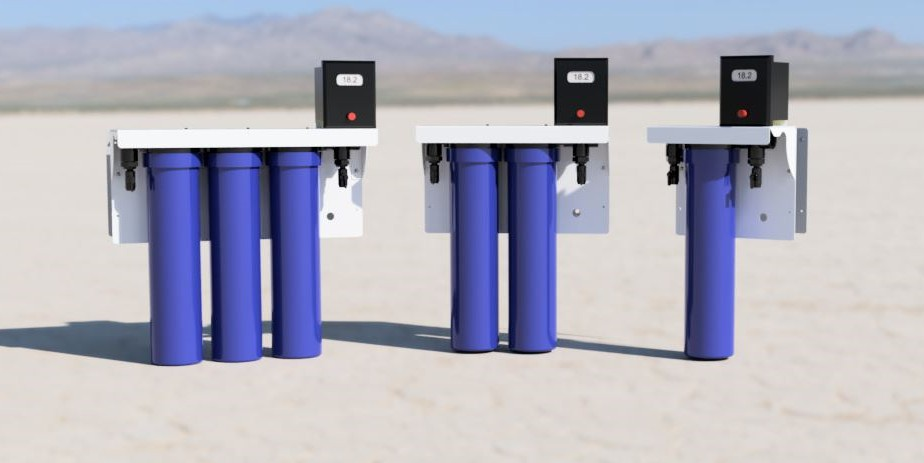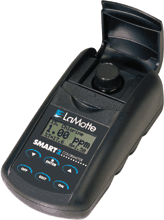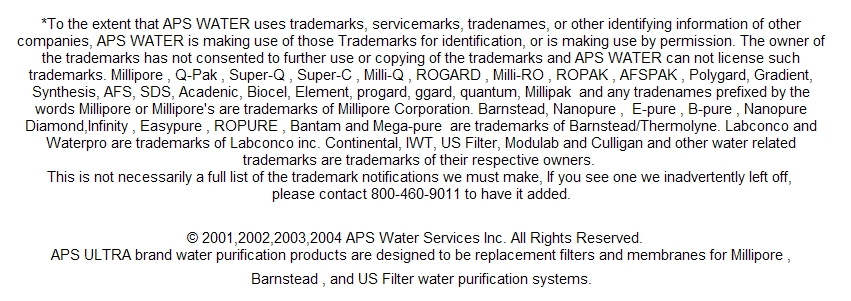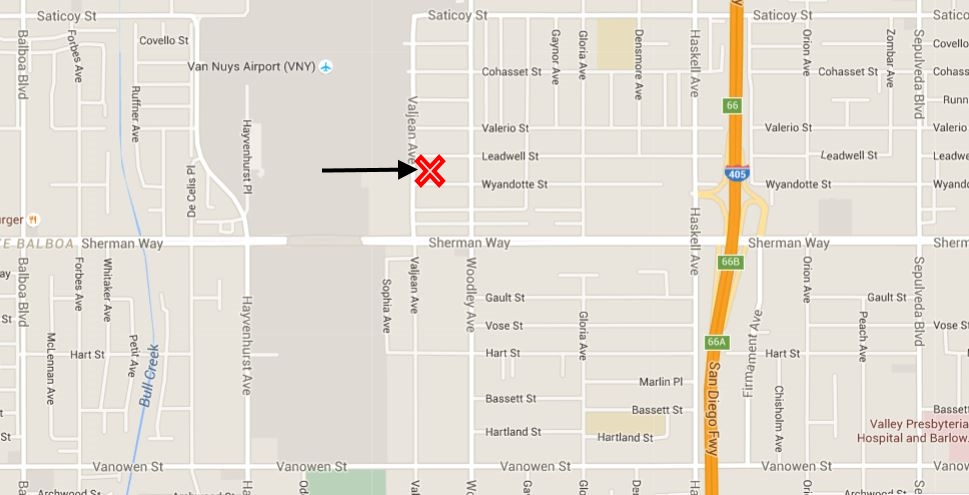|
|
|
|
|
 |
ON SALE NOW
Introducing the Polaris Lab Water Systems
High Purity Water Made In The USA.
Click here for more info. |
|
|

|
LA1911
LaMotte Smart Colorimeter
Smart Colorimeter
Retail Price :
$0.00
Our Low Price : $0.00
Sorry, This product is no longer available. Please call for alternatives
An accurate instrument designed for the analyst measuring a variety of water quality parameters. Proper wavelength selection is no longer a concern for the analyst because all opticle filters are included and automatically selected by the SMART Colormeter. A wide range of tests are available in addition to the popular ones listed.
Electronic colorimeters measure the amount of light which travels through the reacted sample, and convert the measurement to an analog or digital reading as ppm or %T. In addition to colorimeters, LaMotte manufactures instruments to test pH, TDS/conductivity, dissolved oxygen, and turbidity.
Many of the substances in water which must be measured are colorless and so they are invisible. So, how do you determine how much of that substance is there if you can't see it? A common method for testing how much of a substance is in the water is to run a colorimetric test. A colorimetric test is a test which forms a color. The amount of the color is then measured. In most tests the more color formed, the more of the test substance there is in the water.
But how do you measure the color which has been formed? You could look at the color with your eyes and compare the color formed with some standards. This is a visual measurement of the color. Visual methods can give very good results when applied in an appropriate manner. However, visual measurements of color are subjective. Everyones eyes are different. Some people are color blind. Colors might look different when there is different lighting.
When your testing protocol requires the utmost accuracy and precision these problems must be solved. How do you do that? You use a colorimeter.
LaMotte colorimeters were developed to make measuring color differences in water easy. The detectors in these colorimeters are very sensitive and can detect very small differences in color. These measurements do not depend on the eyes of the person making the measurement. The intensity and color of the light used to make measurements are carefully controlled with electronic circuitry and light filters. This eliminates problems caused by different lighting situations.
To use a colorimeter for colorimetric testing, the color being measured must be proportional to the concentration of the substance being tested. The greater the intensity of the color observed, the greater the concentration of the substance. Beers Law is used to make this relationship quantitative.
Beers Law says that the absorbance measured with the colorimeter depends on three things: 1 the substance being measured; 2 the concentration of the substance; 3 the pathlength or distance the light travels through the substance.
Absorbance is the measure of how much light is absorbed by a substance compared with a blank usually clear, colorless water.
The substance determines the color of light which is absorbed and consequently, the color which must be measured. When white light passes through a colored substance, the substance absorbs one color and transmits the rest. Your eyes see the transmitted color. You must measure the absorbed color since that is the color of the light which interacts with the substance being tested. For instance, a blue substance absorbs yellow light and transmits blue. You see the blue color but yellow light is used to measure the absorbance of the blue substance. LaMotte colorimeters use special light filters to select the color of light used to measure the absorbance.
As mentioned above, the concentration of the substance determines how much colored light is absorbed. The more substance present the more light is absorbed. LaMotte colorimeters are calibrated to determine concentrations directly.
The longer the distance the pathlength that the light travels through the substance the more light is absorbed. This means that a calibration for a colorimetric test must always be performed using the same pathlength. All LaMotte colorimeters have a fixed pathlength for each test.
LaMotte colorimeters apply the principles of Beers Law to give you the result you want. The concentration, the color of light, and pathlength are set for the colorimetric test being performed. You measure the absorbance. The concentration is given from a calibrated look-up table, a calibrated direct-reading scale or a calibrated direct-reading display.
LaMottes SMART Colorimeter uses innovative microprocessor technology to give the analyst 42 colorimetric tests at the press of a button. Plus, the analyst can enter up to 25 of his own colorimetric tests. The meters memory will store 500 test results.
Related Categories
|
See All : LaMotte Smart Colorimeter |
|
|

All Images are representative and may or may not be of actual product.
Tags : RESEDA WATER | LA1911 | - | LAMOTTE | SMART | COLORIMETER
RESEDA-WATER.COM content
(C)2009-2024 APS Water Services Corporation - All rights reserved
Website Software - Multi-Website Content Manager - Wilson Web Engineering (C)2012-2024
Micro-Website is a trademark of Wilson Web Engineering
la1911 - lamotte smart colorimeter
reseda-water.com micro-website™
4/18/2024
9:20:09 PM
 Google Apps
Google Apps
|






